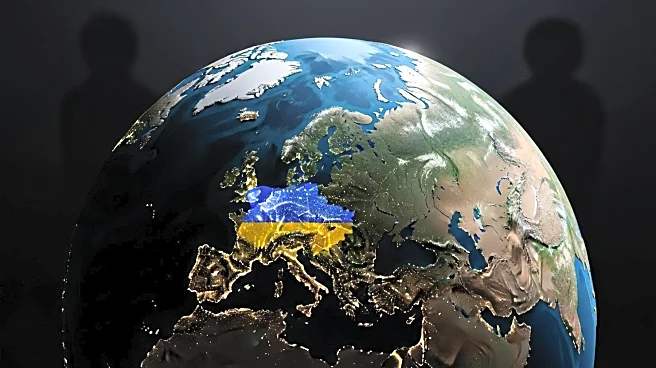What's Happening?
President Trump has shifted his stance to support Ukraine, influenced by new intelligence reports indicating significant Russian battlefield and economic losses. The intelligence suggests that Russia is facing economic challenges and military setbacks due to its invasion of Ukraine. Trump's statement, made after meeting Ukrainian President Volodymyr Zelensky at the United Nations General Assembly, aims to pressure Russia into negotiations. Despite ongoing efforts for peace talks, Russian President Vladimir Putin has shown no interest in a truce, continuing military actions against civilian targets.
Why It's Important?
This shift in President Trump's stance could have substantial implications for U.S. foreign policy and international relations. By supporting Ukraine, the U.S. may strengthen its alliances and influence in Eastern Europe. The intelligence on Russia's struggles could also impact global economic and military strategies, potentially leading to increased pressure on Russia from other nations. For Ukraine, U.S. support could bolster its defense efforts and diplomatic standing, while Russia may face heightened scrutiny and challenges in sustaining its military operations.
What's Next?
The U.S. administration may continue to leverage this intelligence to push for negotiations between Ukraine and Russia. The situation could lead to further diplomatic efforts and potential shifts in international alliances. Stakeholders, including political leaders and international organizations, may respond by reassessing their positions and strategies regarding the conflict. The ongoing developments could influence future U.S. foreign policy decisions and impact global geopolitical dynamics.









